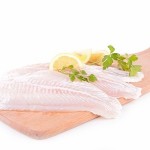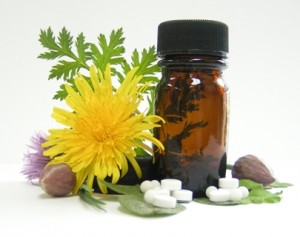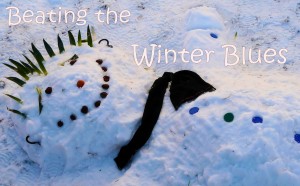 The days are getting shorter. We have seen the first snowflakes and while the busy holiday season is upon us with all its festivities and get-togethers, insufficient daylight may find you down in the dumps and more tired than usual.
The days are getting shorter. We have seen the first snowflakes and while the busy holiday season is upon us with all its festivities and get-togethers, insufficient daylight may find you down in the dumps and more tired than usual.
It could be that you are you one of the millions of people that suffer from the winter blues. More than just feeling a little down, Seasonal Affective Disorder (SAD) is now an accepted clinical condition brought on by a lack of natural daylight and vitamin D, which affects more women than men.
Seasonal affective disorder (SAD) or seasonal depression (winter blues) can be a mild or serious disorder. Even if you haven’t been diagnosed with the disorder, you still may experience several of the symptoms including fatigue, depression, and withdrawal from others during the winter months. And with only a few hours, if any, of sunshine everyday and cold weather pushing everyone inside, it’s no wonder the wintertime blahs are a common sentiment. Kids thrive on lots of active outdoor playtime, so they really experience the changes in the seasons and can remind us a bit of caged animals when they haven’t gotten enough activity.
Ways to Beat the Winter Blues
The first step to treating any condition is recognizing it, so if these symptoms sound like you, here are some great ways to beat the winter blues before they seriously take hold.
Exercise
Daily exercise is known to be a natural way to counter feeling down. A good workout or hard exercise releases serotonin and endorphins which control our feelings of well-being. Enjoying outdoor exercise can also provide us with fresh air and new sights which are a natural spirit-booster.
Five portions of fruit and vegetables are the very least you should be consuming for overall good health and vitality. A healthy diet high in green leafy veggies, nuts, fruits and natural unprocessed foods will reward you with a healthy, happy body whatever the season.
Omega-3 has been shown to significantly reduce the symptoms of SAD as it relieves the general symptoms of anxiety. Good sources of this essential oil are anchovies, salmon, mackerel, tuna and other oily fish along with good quality fish oil supplements. The recommended daily dosage is at least 1000mg, so check you are getting sufficient Omega-3 every day.
Top up on Raw Dairy Products
Include plenty of raw dairy products that are low in fat and high in natural organic goodness. Include milk, yoghurt, raw cheese, and kefir for strong bones and a healthy immune system.
Supplements
It is best to avoid food allergens and aim for a whole foods diet with limited processed food, limited refined carbohydrates, and lots of vegetables and fruits, along with healthy oils as 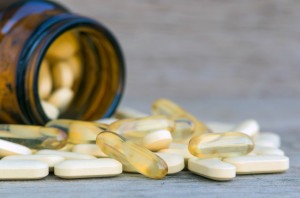 mentioned above.
mentioned above.
• B vitamins, especially Folic Acid and Vitamin B6: B vitamins are known to play a role in emotional well-being and mental health.
• Vitamin D: Although getting sufficient vitamin D naturally is always best, those living in northern climates, have darker skin or are over the age of 50 generally need to top up their dietary intake with a supplement, particularly in winter. Taken daily it helps support a healthy immune system to fight colds and flu among other benefits. It also plays a significant role in mood regulation, so adequate vitamin D is essential to banish those winter blues completely. Other options include fortified soy milks, cereals, and orange juice. Check with your doctor or trusted medical professional for supplement recommendations.
• Use a light box
• Those who suffer from winter blues often have low levels of vitamin D, known as “the sunshine vitamin”. Vitamin D is produced naturally when the skin is exposed to sunlight for 10-15 minutes several times a week. If you live in an area with no opportunity for exposing your body to the sun’s rays, you may want to consider using a light box. Light therapy gives your body the benefits of sunshine even on cloudy winter days.
• St. John’s Wort: This herb can act as an antidepressant and is helpful for some people. (DO NOT take St. John’s Wort if you are on anti-retrovirals, birth control pills, or other antidepressant medications. Do not take in conjunction with lightbox therapy, as the herb can cause photosensitivity).
• SAMe (S-adenosy-L-methionine): This chemical, naturally found in the human body, is also produced synthetically and available as a supplement; it can be helpful for certain people in the treatment of depression.
Poor sleep quality and insomnia are classic signs of depression which can quickly become a downward spiral. Make sure you have a comfortable bed in a room that is the correct temperature. Concentrate on a healthy natural diet to avoid sleep problems which can be caused by caffeine, sugar and highly processed foods.
Talk About It
One of the best ways to feel better is to open up and talk about how you’re doing. If you’re feeling blue or having a hard time getting motivated, talk to a friend about it. Most likely, they have felt or are feeling similar and you can help each other along by trading stories and tips. If your sadness or lethargy is continuing over days or weeks, or making it hard for you to function, consider reaching out to a counselor or another professional who can help.
Homeopathy
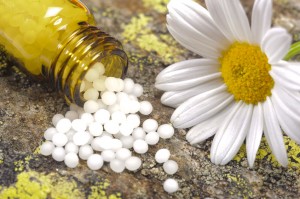
The problem appears to vary in its severity. It is estimated that 2% of the population may experience a severe form of depression, fatigue, and disturbed sleep, while an additional 20% may suffer from a less severe manifestation of the condition. Both situations can benefit from homeopathic attention and support.
Since this is likely to be a recurring problem (although the severity of the symptoms may vary from one year to another), it falls into a chronic category and is best treated by an experienced homeopathic practitioner. You will get the best results from a completely individualized constitutional remedy.
Below are some common remedies used to help with seasonal affective disorder:
Sepia: If symptoms of the blues are accompanied by mental, emotional, and physical exhaustion, non-existent libido, and a general sense of indifference to things that would normally stimulate and excite, Sepia may be used. Patients may feel more positive after aerobic exercise.
Natrum mur: If you are feeling withdrawn and depressed, and also crave carbohydrates and salt, Natrum mur may be helpful. Patients may weep when alone, since crying in front of anyone else feels humiliating. Displays of affection and sympathy are not well received as sufferers tend to keep a stiff upper lip.
Ammonium carb: This remedy is useful for chilly individuals who are very much affected by the dull, cloudy weather of winter- they become apathetic and unmotivated, not wanting to work or do anything. They eat themselves silly-craving lots of sweet things (especially candies which give them toothaches) and they put on weight.
Rhus Tox: This remedy is useful for those who are particularly vulnerable to cloudy weather, who find that the cold, damp, wet, and cloudy weather makes them feel just plain miserable. Their body reacts by stiffening up-especially the back and the joints-which makes them feel even worse. Getting up after sitting or lying down for a while is difficult, and then continued movement eases the stiffness. Unfortunately those joints start to hurt again after being used for a while so the person has to rest-after which the whole maddening cycle starts again, thereby causing the restlessness that is a keynote for this remedy.

